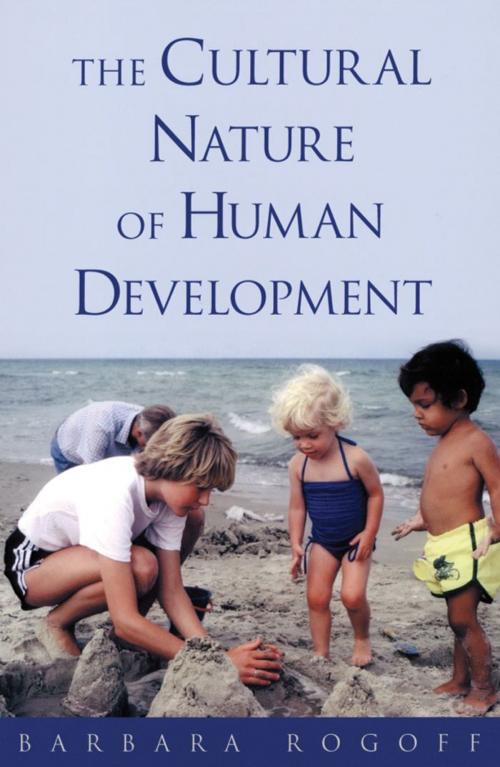The Cultural Nature of Human Development
Nonfiction, Health & Well Being, Psychology, Developmental Psychology, Science & Nature, Science, Biological Sciences, Evolution| Author: | Barbara Rogoff | ISBN: | 9780199813629 |
| Publisher: | Oxford University Press, USA | Publication: | January 15, 2003 |
| Imprint: | Oxford University Press | Language: | English |
| Author: | Barbara Rogoff |
| ISBN: | 9780199813629 |
| Publisher: | Oxford University Press, USA |
| Publication: | January 15, 2003 |
| Imprint: | Oxford University Press |
| Language: | English |
Three-year-old Kwara'ae children in Oceania act as caregivers of their younger siblings, but in the UK, it is an offense to leave a child under age 14 ears without adult supervision. In the Efe community in Zaire, infants routinely use machetes with safety and some skill, although U.S. middle-class adults often do not trust young children with knives. What explains these marked differences in the capabilities of these children? Until recently, traditional understandings of human development held that a child's development is universal and that children have characteristics and skills that develop independently of cultural processes. Barbara Rogoff argues, however, that human development must be understood as a cultural process, not simply a biological or psychological one. Individuals develop as members of a community, and their development can only be fully understood by examining the practices and circumstances of their communities.
Three-year-old Kwara'ae children in Oceania act as caregivers of their younger siblings, but in the UK, it is an offense to leave a child under age 14 ears without adult supervision. In the Efe community in Zaire, infants routinely use machetes with safety and some skill, although U.S. middle-class adults often do not trust young children with knives. What explains these marked differences in the capabilities of these children? Until recently, traditional understandings of human development held that a child's development is universal and that children have characteristics and skills that develop independently of cultural processes. Barbara Rogoff argues, however, that human development must be understood as a cultural process, not simply a biological or psychological one. Individuals develop as members of a community, and their development can only be fully understood by examining the practices and circumstances of their communities.















